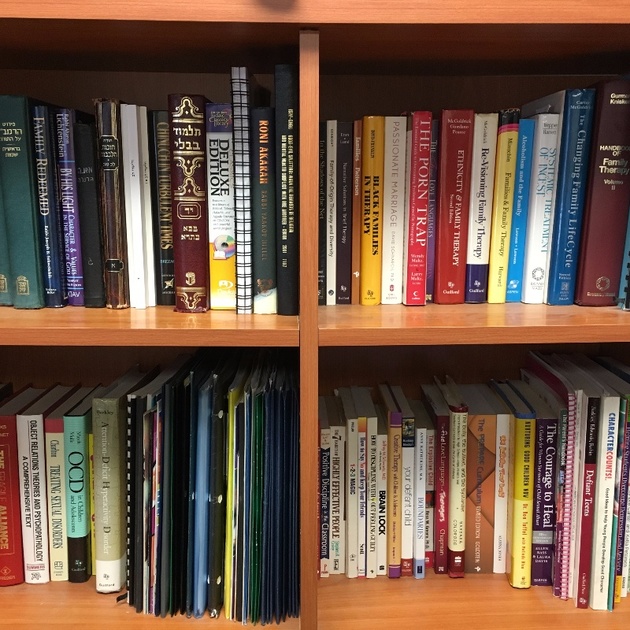
Let's study some Torah verses that are read right around this time of year. We would be doing so, with an eye for uncovering the nuggets of wisdom – psychological or otherwise – that lie immediately beneath the surface of the text.
Avraham has just sent away, Yishma’el, his eldest son. Sarah had ordered that he be driven away and G-d had endorsed the plan. Hagar, Yishmael’s mother leaves with light provisions and with a young, already ailing, Yishmael. They head toward Beersheva. Yishmael, in his feverish state, drinks more than his share, the water runs out and he is in peril of dying.
Hagar places Yishmael under a bush, in Hebrew תַּÖ×ַת ×Ö·×Ö·Ö¥× ×ַש×Ö¼Ö´××Ö´Ö½×. She later positions herself ×Ö´× Ö¼Ö¶Ö×Ö¶× ×ַרְ×Öµ×§Ö ×Ö¼Ö´×Ö°×Ö·×Ö²×ÖµÖ£× ×§Ö¶Öש×ֶת – a bowshot away, saying to herself, “I cannot bear to look.”
G-d intervenes. An angel calls out to Hagar words of encouragement. G-d opens her eyes and she discovers a spring. Yishmael survives and ultimately thrives. We are informed that he grew up to become a ר×× ×§×©×ª – an archer.
It would seem an unusual coincidence that, at first, in a time of danger, Yishmael was positioned a bowshot away from his mother, and that, later, when he grew up, Yishmael became a bow shooter (an archer). Some commentators explain that Yishmael was already on the path to becoming an archer, at the time he and Hagar set out on their journey. Hagar chose the distance of more than a single bow shot, so as to protect herself, lest he shoot her, while in a delirious state.
Perhaps there is another explanation.
Many years later, Ya’akov, with his earthly life approaching its end, granted a special portion – some say it was the city of Shechem – to his grandchildren, Ephraim and Menashe. In bequeathing Shechem to them, Yaakov noted that he took the city from the Emorite inhabitants, ××ר×× ××קשת×. This is literally translated as “with my sword and bow”. Onkelos, though, departs from the literal translation, stating that Yaakov took Shechem with his prayers and entreaties (×צ×××ª× ××××¢×ת×).
There is a separate discussion as to what clued Onkelos in to the notion that Yaakov was referring not to weapons of war, but to the power of prayer. (See the commentaries of the Netziv). What is relevant to us is that sometimes Keshet/קשת refers to verbal entreaties, to beseeching, to cries for help.
Let us return to the narrative surrounding Hagar and Yishmael. We can now say that Hagar placed Yishmael a Keshet shot away from herself, so as not to hear his cries. Not only could she not bear to see his demise; she also could not bear to hear and listen to him in his agony. Consistent with this is her placing Yishmael under one of the Sichim/ש××××. Siach means thorn bush. It can also mean speech, as in Sichah/discourse. Hagar wanted to ensure that Yishmael would remain sub-lingua, or beyond, speech. This, in order that his words and wailing would not pierce her heart.
So insulated was Hagar from the sounds made by Yishmael, that the Torah itself does not record Yishmael crying out, other than by indirectly informing us that G-d listened to his voice – literally, the voice of the youth. (What voice? Who said anything about Yishmael calling out to Hashem, in the first place?)
With reference to G-d listening to the voice of Yishmael, Rashi cites a famous inference. G-d listened to the voice and prayers of Yishmael, but not to those of Hagar. “From here [we learn] that the prayer of an ailing person is more powerful than that of those praying on his behalf.”
Based on our description of Hagar's sense of despair, there is another, equally powerful inference to be drawn: G-d, and G-d alone, heard Yishmael’s prayer. Hagar could not and would not hear Yishmael. She had distanced herself from his entreaties.
And now it makes sense why Yishmael became a Roveh Kashas/ר×× ×§×©×ª, which we’ve learned, from Yaakov, need not mean just an archer. It can also mean an expert beseecher, a man of prayer.
At least it makes sense to psychologists… and in different ways.
A psychologist with a Behavioral background, would argue that Yishmael became a master of prayer, because G-d had conditioned him to pray. G-d rewarded Yishmael, when he was in the direst of straits, answering his prayers. Yishmael learns that if he prays, then Yisma El, G-d will listen. (When Yishmael was first given his name, it may have been because G-d listened to the prayers of his mother; now, though, G-d is listening to his prayers.) Yishmael's legacy has projected itself across the millennia. To this day, many of those belonging to the Muslim religion, arguably the spiritual descendants of Yishmael, can be observed, at their prayer times, in devotion, prostrating their selves and calling out to G-d.
A psychologist with a more Analytic background would add the following. Inasmuch as that Yishmael was abandoned by his mother, and that despite his desperation, she was unwilling to hear him, Yishmael fell into the dynamic of Repetition Compulsion. Here, a child or adult who faces a traumatic event unconsciously recreates the circumstances of the event, again and again, with the (still, unconscious) hope of achieving a better outcome.
According to Analysts, Yishmael’s becoming a Roveh Kashas, a master of prayer contains in it a kernel of hope that maybe this time his mother, Hagar, will hear him, and if not this time, then maybe the next time, or the time after that. Some might even discern in the haunting wail of the Muezzin, who invites his co-religionists to prayer, the cry of a child separated from his mother.
It doesn’t end there. There is, in the Torah, yet another instance of a youth calling out for help and not being heard.
Immediately before being sold and enslaved by the Egyptians, Yosef was attacked by his brothers and thrown into a pit. Right then and there Yosef called out to them and asked them for mercy. Yet the above is not recorded at that stage of the narrative. It is only years later, when his brothers come down to Egypt with the intention of buying food, and are given a hard time by the Egyptian Viceroy, that they confide to each other: “Are we not guilty for seeing our brother (Yosef) in his anguish and in his calling out to us, and yet we did not hear him.” Once again, we have a dynamic whereby people are so tuned out to the cries and wails of a relative in need, that the Torah does not, at that (initial) point, make mention of the relative’s entreaties.
I find it remarkable that at the moment Yosef’s brothers decide to sell him, and thereby shut out his cries, that the next people to arrive at the scene are a band of Yishmaelites. It is particularly the descendants of Yishmael, who underwent the trauma of being abandoned and unheeded by their mother, who were "tuned in" to the otherwise disregarded cry of Yosef.
There are multiple lessons to learn from the above. They relate to the impact of listening or not listening to others in need. They relate, as well, to how a traumatic event that seemingly handicaps a person or group of people can actually sensitize them to the plight of others. I would hope that all of us find a way to open ourselves up to the unheeded cries of others, particularly those who are bound to us, as relatives, clients or friends, and who are counting us.
Photo Credit: FreeDigitalPhotos.net
 Previous
Previous

